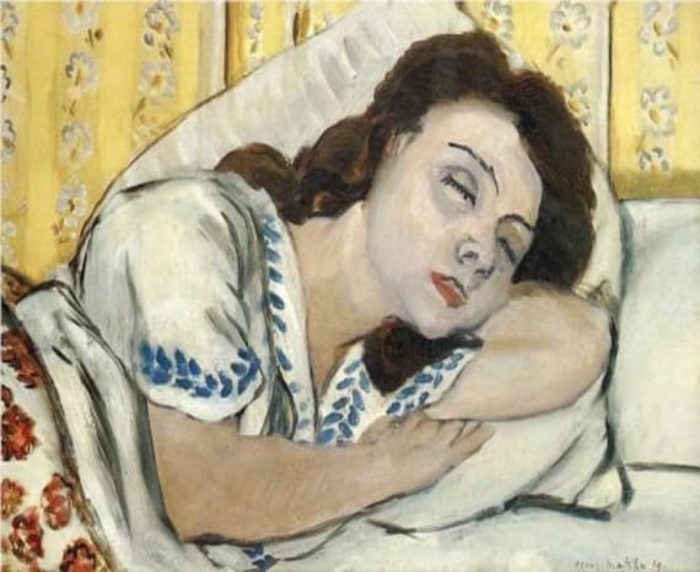Research shows insomnia is a major risk factor for depression, and that depression itself can also leads to insomnia.
Not only are they correlated, but it appears either can cause the other.
And we’ve also heard all about good sleep hygeine — you know, turn off the electronics, set up a regular bedtime etc.,
But a brand new study shows that the most effective sleep training isn’t simply about education, but primarily, working with a counselor on building strong sleep habits through cognitive behavioral therapy for insomnia (CBT-I).
Scientists are particularly excited about this study, because as study author Dr. Michael Irwin (UCLA) tells CNN, “We have shown that we can actually target insomnia with cognitive behavioral therapy and prevent depression from occurring.”
In other words, it’s possible to ward off encroaching depression in elderly adults by helping them get better sleeps. (That’s particularly good news for the elderly because sleep medications can lead to struggles with balance, which can lead to falls and fractures).
But to achieve the greatest success, the study showed it was best to work with a therapist using behavioral sleep training, CBT-I.
So what is CBT-I?
Well, according to the study it involves stimulus control, sleep hygiene, relaxation, CBT, and sleep restriction.
What are each of those?
The Sleep Foundation offers these explanations.
Basically, stimulus control is about using your bedroom for just two things — sleep and sex. That way, your mind begins to think, “sleep or sex” when it enters your bedroom and both of those are good for you and for your sleep.
Sleep restriction is somewhat related. Let’s say you spend eight hours in bed, but only actually sleep 3 hours. That’s five hours of existential tossing and turning (which is really bad for depressed people, or people prone to it).
In sleep restriction, you just get up and do something else and literally only sleep once you can’t hold your eyelids up anymore. That forces the issue on using your bed, purely for sleep.
As your mind recalibrates, it will hopefully increasingly associate sleep with bed and you’ll get back (theoretically) to the intended 8 hours.
However, the Sleep Foundation notes that people with bipolar disorder and seizures should be careful about this practice.
Relaxation training involves breathing exercises (here are the 9 best ones for sleep), progressive muscle relaxation (read here about pmr for sleep), autogenic training, biofeedback, hypnosis, meditation, or some combination of those.
Then there’s the psychoeducation component, which is a person-to-person connection where you discuss all of this, and other factors like diet and nutrition.
Now, does this all work?
The Sleep Foundation notes studies showing that 70-80% of patients experience improvements in their insomnia, including pregnant women, those with PTSD, and other high risk groups.
And now, according to the new study in JAMA Psychiatry, elderly adults. And not only does it help their sleep, it can ward off depression!
Woo-hoo!
Of course, you might be wondering — why can’t I research this online and just do it myself, without all the hassle of involving a therapist?
Well, you could.
But it probably wouldn’t be as effective, because you probably wouldn’t keep at it.
Researchers noted that the study group that received sleep training, without counselor interaction, showed improvements, but they weren’t durable, because people often just gave up when they didn’t work.
The group that had counselors was much less likely to give up.
SO… how do you find one of these sleep counselors?
Here’s a map, courtesy of the Society of Behavioral Sleep Medicine, where you can click on your state and find just such a therapist.
I’m a huge fan of therapists because they’ve helped me so much.
But I’m also a huge fan of online support because it’s helped me, as well.
But online support, reading sites — they can only go so far.
And relatedly, there was a study, published this week, showing that those digital apps for depression and anxiety are helpful, but the problem is that people are much less likely to stick to them than they are going to a therapist.
Face-to-face therapy is just clutch.
But I understand not everyone can do it, for various reasons, including financial ones. So I’m also a big believer in discussion boards.
I’ve often found browsing these forums helpful.
Patient Info: (numerous boards for many health conditions)
Mental Health Forum: (Anxiety, Depression, OCD, Bipolar, Covid and Mental Health)
Spend some time there, and you’ll come away thinking “I’m not alone in this,” and that shared sense of suffering can build deep bonds.
[Painting. Portrait of a Sleeping Marguerite, Matisse (1920)].
By the way, HuffPost has an interesting piece on why artists have historically been so keen on capturing sleep in their work.
Yale Professor Meir Kryger explains that, among other things, “When one goes to sleep, one falls alone, and when one enters dreamland, one walks by one’s self. Here lies the appeal for artists.” That’s as good as anyone can say it.

